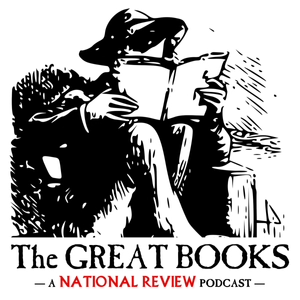
SHORTCAST | What We Owe Each Other: a new social contract
04/01/21 • 19 min
1 Listener
Previous Episode

The Psychology of Intergroup Inequality
Contributor(s): Professor Jim Sidanius | The Black Lives Matter and #MeToo movements have led to a renewed focus on the persistence of inequality along the lines of race, gender, and their intersection. Political psychology attempts to shed light on this through connecting individual behaviour to wider institutional and ideological dynamics. On the eve of the completion of an updated edition of his now classic text, Social Dominance: An Intergroup Theory of Hierarchy and Oppression, political psychologist Jim Sidanius will present some of his latest ideas on the psychological foundations of intergroup inequality, followed by a conversation on their relevance to twenty-first century struggles for social justice. Meet our speaker and chair Jim Sidanius is the John Lindsley Professor of Psychology in memory of William James and of African and African American Studies at Harvard University. Jennifer Sheehy-Skeffington (@jsskeffington) is an Assistant Professor in the department of Psychological and Behavioural Science at LSE. More about this event The Department of Psychological & Behavioural Science (@LSE_PBS) is a growing community of researchers, intellectuals, and students who investigate the human mind and behaviour in a societal context. Our department conducts cutting-edge psychological and behavioural research that is both based in and applied to the real world.
Next Episode

Inequality: the misallocation of talent and economic development
Contributor(s): Dr Daphne Nicolitsas | Putting available talent to its best use is key for the welfare of individuals and of the society to which they belong. Unequal access to opportunity in education and labour markets tampers with the allocation of talent leading to more inequality, poverty traps and lower welfare for all. This lecture reviews recent evidence on the misallocation of talent by economic class and gender in different settings, highlighting how temporary shocks - such as the current pandemic can have permanent consequences. Meet our speakers and chair Oriana Bandiera (@orianabandiera) is the Sir Anthony Atkinson Professor of Economics at LSE, and a fellow of the British Academy, the Econometric Society, CEPR, BREAD and IZA. She is co-editor of Econometrica, vice-president of the European Economic Association, and director of the Gender, Growth and Labour Markets in Low-Income Countries (G2LM|LIC) programme. She serves on the council of the Econometric Society, on board of the International Growth Centre and as vice-president of the Collegio Carlo Alberto. Aristides N. Hatzis is Professor of Philosophy of Law and Theory of Institutions at the University of Athens. He is the Director of Research at the Center for Liberal Studies-Athens, a Fellow of the Institute for Research in Economics and Fiscal Issues-Paris, and a member of the Advisory Board of the Society of European Contract Law, the Steering Committee of the European Network for Better Regulation and the Editorial Board of the European Review of Contract Law. Daphne Nicolitsas is, since Feb 2014, an Assistant Professor at the Department of Economics of the University of Crete. Prior to that she worked in economic policy related jobs and in the financial sector. Her main research interests lie in labour economics and in industrial organization, fields in which she has publications in international journals. Currently, she is co-ordinating an EU-funded project, with partners from top EU Universities, on the structure and conduct of Employers’ Associations in the EU. Kevin Featherstone is Eleftherios Venizelos Professor in Contemporary Greek Studies and Professor in European Politics and the Director of the Hellenic Observatory. More about this event The Hellenic Observatory (@HO_LSE) is internationally recognised as one of the premier research centres on contemporary Greece and Cyprus. It engages in a range of activities, including developing and supporting academic and policy-related research; organisation of conferences, seminars and workshops; academic exchange through visiting fellowships and internships; as well as teaching at the graduate level through LSE's European Institute. The National Bank of Greece (@NationalBankGR), backed by its 179-year participation in the country's economic and social life, is one of the leading Greek financial organisations, with strong tradition and noteworthy contribution to the economic and social transformation of Greece. The Bank’s broad customer base, respected brand name, strong market share in deposits and enhanced capital adequacy ratios secure it with the liquidity needed to finance Greek businesses and reflect the long-standing relationship of trust it enjoys with its clientele. This event forms part of the Hellenic Observatory Athens Lecture Series, co-organised with the National Bank of Greece and supported by the LSE Hellenic Alumni Association. Twitter Hashtag for this event: #LSEAthensLectures
If you like this episode you’ll love
Episode Comments
Generate a badge
Get a badge for your website that links back to this episode
<a href="https://goodpods.com/podcasts/lse-public-lectures-and-events-35589/shortcast-what-we-owe-each-other-a-new-social-contract-12812933"> <img src="https://storage.googleapis.com/goodpods-images-bucket/badges/generic-badge-1.svg" alt="listen to shortcast | what we owe each other: a new social contract on goodpods" style="width: 225px" /> </a>
Copy




